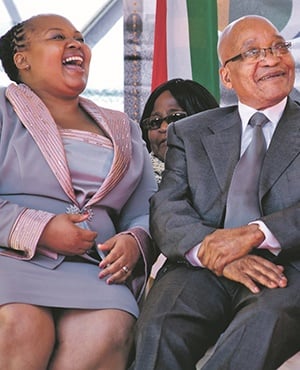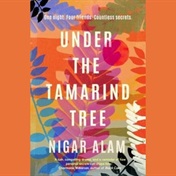
A judge once directed a jury as follows: “Gentlemen of the jury, you’ve heard the evidence of the witnesses for the Crown and that of the accused.
"If you believe the evidence of the Crown witnesses, you will convict the accused. If you believe the accused, you will believe anything.”
The jury acquitted the accused.
Gayton McKenzie’s book Kill Zuma By Any Means Necessary is unlikely to earn him an Alan Paton Award nomination in May.
This is rather ironic.
The Alan Paton Award is conferred for books that present “the illumination of truthfulness, especially those forms of it that are new, delicate, unfashionable and fly in the face of power”.
But it is precisely these qualities that have seemingly earned the book obloquy from people, some of whom have not even read it.
Power – in neocapitalist South Africa as in other countries – lies not in governments but in multinational corporations and financial institutions that brook no national boundaries. Governments in such societies tend, by and large, to do these corporations’ bidding.
Literary works are littered with nationalistic leaders (mostly in developing economies) who have fallen, one way or another, for daring to stand in the way.
The instinctive dismissal of the book as “pure fiction” is demonstrative of the creeping intolerance of those wedded to one world outlook.
Even our courts are increasingly being turned into blunt instruments for quashing a contrary world view.
It does not take much in mainstream, urban South Africa to be “outed” as “a bot”, “captured” or “Guptarised”.
All you need do is train your searchlight on suspicious dealings of those revered by mainstream, urban South Africans.
Should you toss a bit of common sense into the mob-like opprobrium for one Indian family, pointing out the obvious – that the capture of South African institutions did not begin with that family – you’ll be well and truly scarlet-lettered.
To this treacherous South African reality, McKenzie seems to have retorted: “Sod it. Let’s do it!” And do it he did – in fine fashion, too, on balance.
Deepest truths
Fairly early on in the book, he makes plain not only what it is about and aims to achieve, but also what it is not about.
The book is “about why and how various agencies and the interests they represent have identified Jacob Gedleyihlekisa Zuma as their enemy”.
McKenzie boldly suggests that the book “will open your eyes to some of the deepest truths about South Africa that you have probably never thought about”.
He says these “deepest truths” are “jarring and capable of overturning all the casual, everyday assumptions that we as South Africans have come to take for granted”.
He delivers on his promise.
On the first page of the first chapter, McKenzie tells us of a Cabinet minister being “summoned to talk to a member of a family that has often found itself in the headlines for various reasons, including for allegedly wielding an inordinate amount of influence over the state and the business sector as a whole”.
Three pages later, you get a sense of exactly what he means by the “inordinate amount of influence” he says this family wields, and the jarring truths he is talking about: “I want you to go and tell your president that I looked after Mandela.
"But if he fires Pravin Gordhan and Mcebisi Jonas, I will destroy this economy. My friends and I will make it look worse than Zimbabwe.”
McKenzie is not quoting a member of the much-maligned Indian family. He is quoting a white man addressing a Cabinet minister he had summoned to his lair during the first quarter of last year.
This narrative is delivered in suspenseful motif that would come pretty close to making Alfred Hitchcock nod in hesitant approval.
The book is not a scorecard of the Zuma presidency, or his numerous brushes with the law. It does not pretend to rescue the president’s image, whatever is left of it.
On the contrary, the book is rather critical of Zuma for, among other things, doing little to disturb the economic topography in South Africa.
McKenzie – in an understatement of which Oscar Wilde would have been proud – even expresses “doubt” that “all his actions as the president are above reproach”.
A fast-paced roller coaster ride
Concerning matters about which you are unlikely to read or hear in privately owned mainstream media, the book is a fast-paced roller coaster ride.
In less than 250 pages, we learn of:
- “Comrade Fear” and the existential panic he allegedly wrought upon the ruling party in exile;
- How the negotiating team that was to represent the ANC at the Codesa talks had been gerrymandered while Zuma, Thabo Mbeki and Nelson Mandela were out of the country;
- Twelve compromises the ANC made needlessly at Codesa (more capitulation than compromise) – the deleterious effects of which are still plaguing the South African economy;
- Numerous attempts on Zuma’s life.
One such attempt, McKenzie tells us in remarkable detail, involved tampering with the official presidential jet in ways that, in 1981, claimed the lives of two South American presidents within two months of each other;
- The Brics economic union, which, McKenzie tells us, is an inconvenience to the insatiable hegemonic pursuits of the West.
It appears that the potential that Brics holds in promise for the economic independence of emerging economies from the stranglehold of international finance institutions is considered a threat to that hegemony, and so Brics is dismissed in malleable media as a fool’s folly;
- The nuclear build programme that Zuma’s government is rumoured to have negotiated with Russia’s state-owned nuclear agency.
The affordability of the build programme appears to be an Aunt Sally argument.
The real purpose seems to be to scupper any Russian involvement in the deal.
The Cold War never ended, it transmogrified;
- Privately owned mainstream media’s predilection for scandal, provided it does not touch its own revered champions.
To make his point, McKenzie anchors his criticism in a poignant statement a celebrated journalist made at a press banquet held to honour him in the US in 1880:
“We are the tools and vassals of rich men behind the scenes. We are the jumping jacks, they pull the strings and we dance.
"Our talents, our possibilities and our lives are all the property of other men. We are intellectual prostitutes.”;
- Recent examples of journalistic “intellectual prostitution”.
By now, the reader has learnt of the “jarring” and “deepest truths about South Africa” to which McKenzie had in his foreword promised to open our eyes.
The intimate detail with which they are told makes nonsense of naysayers’ dismissal of the book as “pure fiction”; and
- Barry Sergeant’s journalistic intrepidity in reporting on jaw-dropping stuff for those accustomed to tailored tales of corporate probity in South Africa.
However, the book does have its fair share of shortcomings:
- It ends with an open letter to black people in language that rather clumsily conjures up the spectre of Steve Biko’s I Write What I Like, Mandela’s Long Walk to Freedom and Chika Onyeani’s Capitalist Nigger all rolled into one.
McKenzie seemed unsure whose character to adopt, so he went with all three, sounding more like a politician on a whistle-stop campaign in Alexandra than a heartfelt call to economic arms by the oppressed masses across the country;
- I noted at least 28 rudimentary literary faux pas, ranging from simple spelling mistakes to incomplete and incoherent sentences.
One wonders whether his editors and proofreaders were on caffeine tablets; and
- At least two factual inaccuracies are glaring: Maria Ramos was never the governor of the SA Reserve Bank and Paul Hoffman SC was never the evidence leader in the arms deal commission of inquiry.
That said, none of these detract from the force of the book.
If nothing else, mainstream’s suppression of inconvenient truths like the ones revealed and placed on display in this book should be enough for the curious and independent minded to read it and judge it on its own merits, not by the identity of its author – an unfortunate favourite South African pastime.
The book is not a work of art.
It simply gives you information you would not otherwise obtain from mainstream publications.
You could term it a book version of Noseweek, giving you “the news you’re not supposed to know” in less than 250 pages.
Like Noseweek, it is an easy read.
You have a choice – either find out for yourself what lies beyond the cover that a national book outlet finds so offensive, or allow privately owned mainstream media and to others decide for you that the book is “pure fiction”.
Ngalwana is a fellow of the African Leadership Initiative and a member of the Aspen Global Leadership Network




 Publications
Publications
 Partners
Partners















